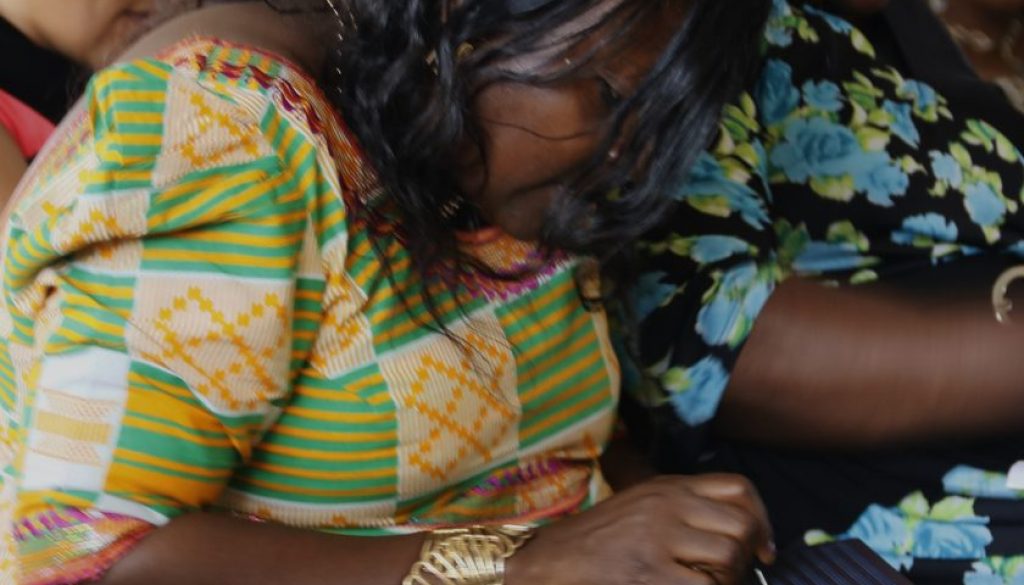NW Education Stakeholders seek Better Ways of Implementing IE
Education stakeholders in the Northwest Region have brainstormed on polices that will enhance the implementation of Inclusive Education (IE) in the region. They made the proposed polices at the end of a two day workshop organized by the Regional Delegations of Secondary and Basic Education in collaboration with Australian Aid through the Socio Economic Empowerment of Persons with Disability (SEEPD) program. The workshop, which took place recently at the Delegation of Secondary Education, was presided over by the Delegates of Secondary and Basic Education.
Mr. Tasi George, Coordinator of Teachers Resource Center and Focal Person for Inclusive Education at the Regional Delegation of Secondary Education, explained that the objective of the workshop was to bring on board stakeholders of the education sector in the region to sharpen their skills and seek better ways of promoting inclusive education in the region.
During the workshop, participants highlighted challenges that learners with impairments face such as inaccessible classroom, stigmatization from teachers and peers, and lack of inclusive curriculum amongst others.
One of the challenges that stood out was that of limited time allocated to learners with impairments especially those with visual impairment. It was noted that learners with impairment require extra time during exams because they brail their scripts, which takes more than the normal time allocated.
One of the facilitators and teacher of the Resource room in GBHS Kumbo, Mr. Chiamba Daniel who lives with a visual impairment, took the teachers through a brail practical session where they were given the opportunity to brail some sentences. After going through the exercise, the teachers were all marveled at the challenge that students with visual impairment go through with the limited time given them during exams. According to Mr. Chiamba, the objective of his presentation was to cause the participants to understand the complicated nature of brail so that they can advocate for extra time for learners with visual impairments.
A participant, Mr. Ngoh Romanus testified that, formerly, he never knew it was time consuming to write in brail and promised to allocate more time to impaired students during exams.
“I was selected last year to mark the scripts of candidates with visual impairment but I never had any idea of the difficulties of limited time that they go through. I think with this brail lesson, I will advocate for extra time for them during exams and I will start it in my school,” the teacher confessed.
On his part, the Head Teacher of the CBC Inclusive School and Sign Language Center Mbingo Mr. Che Manasseh in his presentation on basic sign language skills noted that teachers must have a basic skill in sign language in order to understand the learning needs of learners with hearing impairment.
Earlier, the SEEPD Program Manager, Mr. Awa Jacques Chirac appreciated the stakeholders for collaborating with the SEEPD program in its drive to ensure that children with disability access education. He announced that the current phase of the program is wrapping up in December 2018. Mr Awa disclosed that in the next phase, the program will take the idea of inclusive education beyond the NWR but will still prioritize the NWR as a region where the program piloted inclusive education.
The workshop brought together 67 school administrators from the 18 pilot schools of Inclusive education made up of the government, mission, private secondary and primary schools. They all committed themselves to be ambassadors of inclusive education.
At the close of the workshop, the Delegate of Basic Education, Mr. Ndong Wilfred added his voice to that of the Delegate of Secondary Education to urge the school administrators to promote inclusive education in their schools and source for funding. He applauded the SEEPD program for investing in the education of learners with impairments and pledged the support of the government in ensuring sustainability of inclusive education in the region. Mr. Ndong announced that the policies on inclusive education proposed by the stakeholders will be reviewed and forwarded to the Ministers of Basic and Secondary Education.
